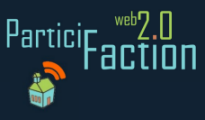In his 1986 essay "Ultimate Discourse," E.L. Doctorow asserts that "fiction is democratic, it reasserts the authority of the single mind to make and remake the world." These days, one could replace the word "fiction" with "Web 2.0" and still have a statement just as true.
One of the many great things about the 2-way nature of Web 2.0 is that it is democratic: it gives voice to individuals, and, if a lot of individuals voice the same thing, their collective voices can bring about real-world change.
In his article "Facebook and Democracy," Shilo Davis writes about the Canadian public's online response to Prime Minister Stephen Harper's recent prorogation of parliament, but in both the article's title and content there is a larger issue implied.
The "Canadians Against Proroguing Parliament" Facebook group has over 200,000 members -- the biggest Facebook group in Cananda, and, as Davis points out, is "the quickest large-scale grassroots political mobilization in Canadian history."
Despite this, some may give less credit to a Facebook group than a pen-and-paper petition. They shouldn't. The CAPP has allowed diverse people in diverse places the ability to coordinate offline events: there are upcoming rallies planned for more than 50 cities and towns. No paper petition -- or one-way Web 1.0 e-mail campaign for that matter -- could ever have coordinated this result this quickly, and without any cost (well, it might cost the Harper government in the end...).
While critics may call social networking for change "slacktivism," there's no denying that Facebook and other Web 2.0 tools allow for the public airing of an individual's (or group's) private thoughts, and that real change may happen as a result. Not a bad definition of democracy, huh?
Friday, January 22, 2010
Subscribe to:
Comments (Atom)



